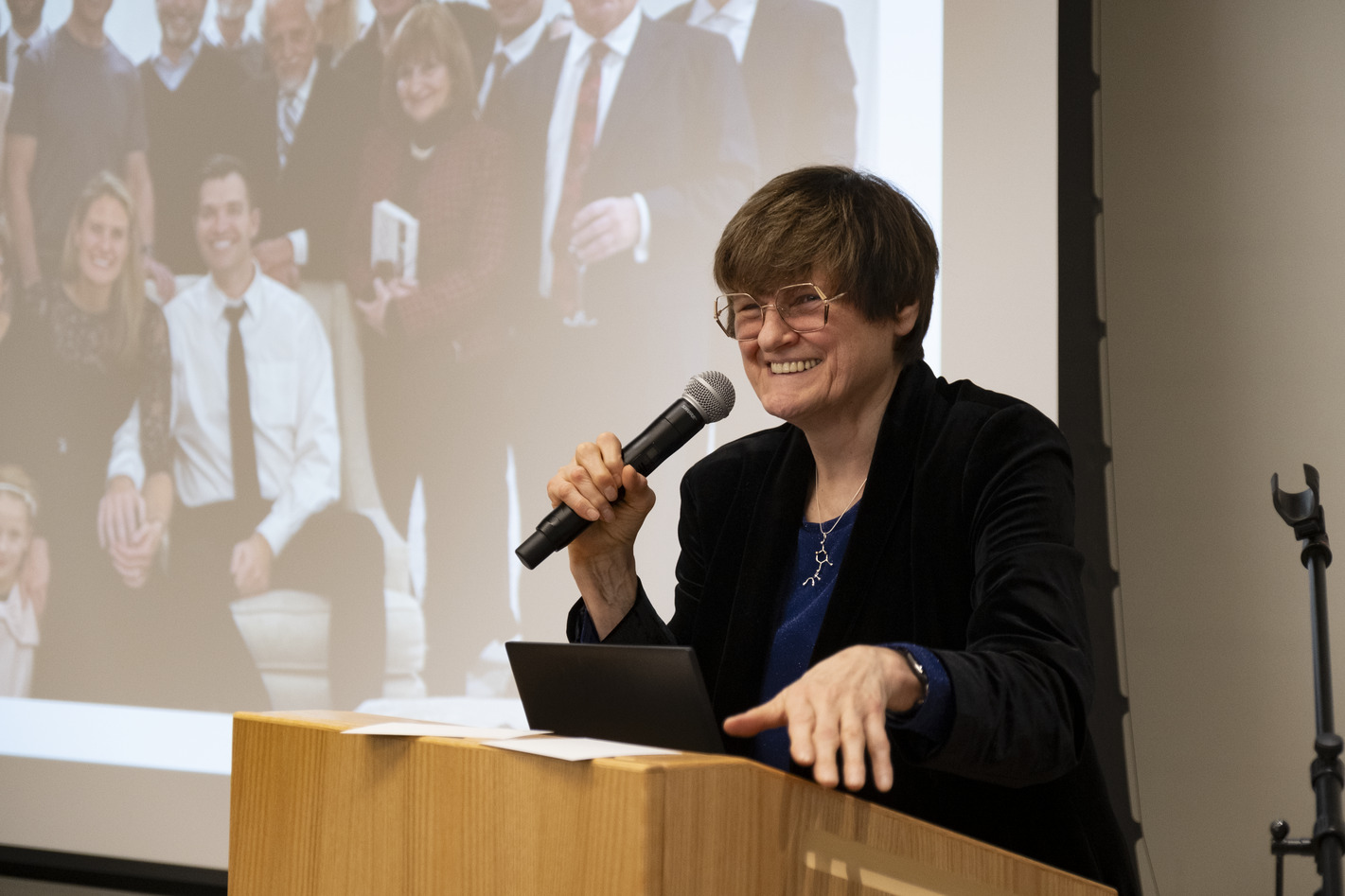Katalin Karikó is the 13th woman in history to win a Nobel Prize in Physiology or Medicine. The scientist, who did her postdoctoral work in Temple’s Department of Biochemistry, recently returned to campus to talk about the experience during the John von Neumann Series of Pure and Applied Sciences at Temple’s Charles Library on March 14.
Karikó, jointly with her research partner Drew Weissman, won the 2023 Nobel Laureate in Medicine for having developed effective mRNA vaccines that laid the groundwork for the COVID-19 vaccine. Their work together, published in seminal studies in 2005, 2008 and 2010, led to a paradigm change in our understanding of how dendritic cells respond to mRNA vaccines. The finding would later be used for the rapid development of the COVID-19 vaccine in 2020.
Both Karikó, and Weissman were guests of honor at the conference. During the conference, Kariko discussed the experience of receiving the Nobel Prize in Stockholm, showing personal photographs and sharing anecdotes of the various events and receptions held for laureates when they receive the prize. With humor, she described the experience of having a four-hour dinner in same room as the royal family of Sweden and a faux pas she made during the Nobel Prize award ceremony in the Stockholm Concert Hall.
She answered questions from the audience, describing the feeling of disbelief when making a breakthrough and outlining the major setbacks and obstacles she has overcome in her career.
She expressed gratitude to be back on Temple’s campus, where she spent three years doing a clinical trial using double-stranded RNA to treat patients with HIV, hematologic diseases and chronic fatigue syndrome. The work was considered groundbreaking for its time and was a precursor to her later work that would garner the world’s highest prize in science.
After leaving Temple, Karikó continued to do postdoctoral work at the University of Health Science, Bethesda. Following her postdoctoral research, she was appointed assistant professor at the University of Pennsylvania, where she remained until 2013, and then vice president at BioNTech RNA Pharmaceuticals. Since 2021, she has served as a professor at the Perelman School of Medicine at the University of Pennsylvania.
The John von Neumann Series of Pure and Applied Sciences invites people to explore the future challenges of scientific progress. The daylong conference, sponsored by the College of Science and Technology and the Office of the Vice President for Research, hosted more than 100 people from the Temple community and beyond to listen to lectures on scientific development by faculty from Temple and other universities and organizations.
Mar. 20, 2024

Photo by Joseph V. Labolito
